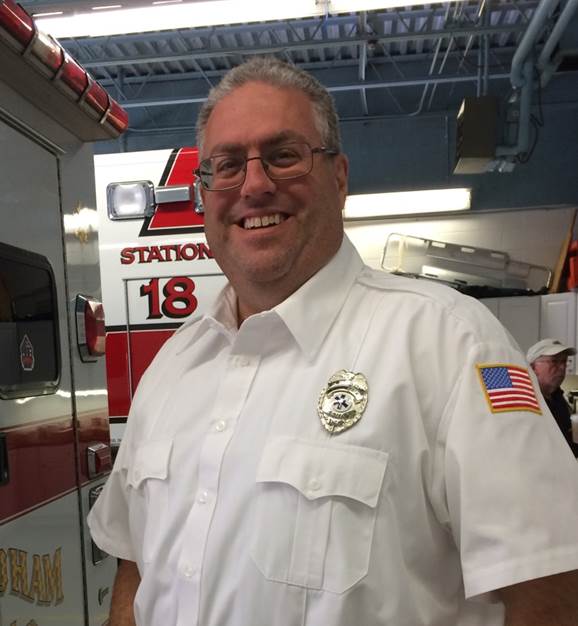|
And so it begins, not with a whimper or a bang, but rather with a 2-and-a-half hour orientation session last night. 24 hopeful future EMTs, split about 50/50 between men and women, from squads around Morris, Union and Somerset counties. I'm taking my EMT course through Atlantic Training Center at the Morris County Public Safety Academy in Parsippany, although there certainly are many other training organizations offering EMT courses in New Jersey. The key message last night was pretty simple: Becoming an EMT is hard work. Be prepared to put in the time, study, practice and study some more. Classroom lectures, reading assignments, online lectures and quizzes, in-class written and practical exams... plus 10 hours of clinical rotation in a hospital emergency department or with the Mobile ICU (MICU, aka paramedics). Clearly, this is not something you can coast through with some last minute cramming. One instructor explained that they weren't there to help us pass the course. Their goals were to turn out the best EMTs possible, and while they'd be more than happy to help us when we need it or when we ask for help, but ultimately this has to be something that we, as students, really wanted to succeed at. The goal, as he explained it, was to teach us to "act, not react". EMS work isn't black and white. It's constant shades of grey, and he noted that the goals of the course were to give us the skills to be successful, not ensure we've memorized the answers to a test. While it's easy to react to someone involved in a car accident with a broken leg, the risk of failing to act appropriately in recognizing the overall injuries of the patient is to end up with a perfectly splinted and packaged for transport corpse, because you missed a more critical life-threatening injury.
Of course, NJ State requirements still mean we have to attend all classes and pass all exams with a minimum 70% pass rate, as well as the state certification exam itself. But the course and instructors aren't just trying to "teach us the test." I didn't realize that, while there are national standards as to what content must be covered in the course, trainers have latitude as to the order in which they cover this material, so my experience and the way we progress through the materials may not match those by other training organizations. I also learned that there are some differences between the NJ State Certification and the National Registry of EMTs (NREMT) certification. While both are recognized in NJ as valid certifications for EMTs, they have different ongoing requirements for recertification and Continuing Education Units (CEUs) required to maintain certifications. Ashley Haynes, one of our Cadet members looking towards becoming a doctor, is also taking the EMT course. We'll probably have a very different personal experience going through this course, but we both agree... we're excited to get started. BRING IT ON!
0 Comments
Your comment will be posted after it is approved.
Leave a Reply. |
AuthorJon Alperin, one of our MFAS volunteers, shares his journey to becoming an NJ certified EMT. from the Start
Here is Jon's journey, presented in time order:
Archives
June 2016
Categories
All
|


 RSS Feed
RSS Feed
